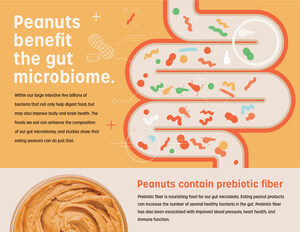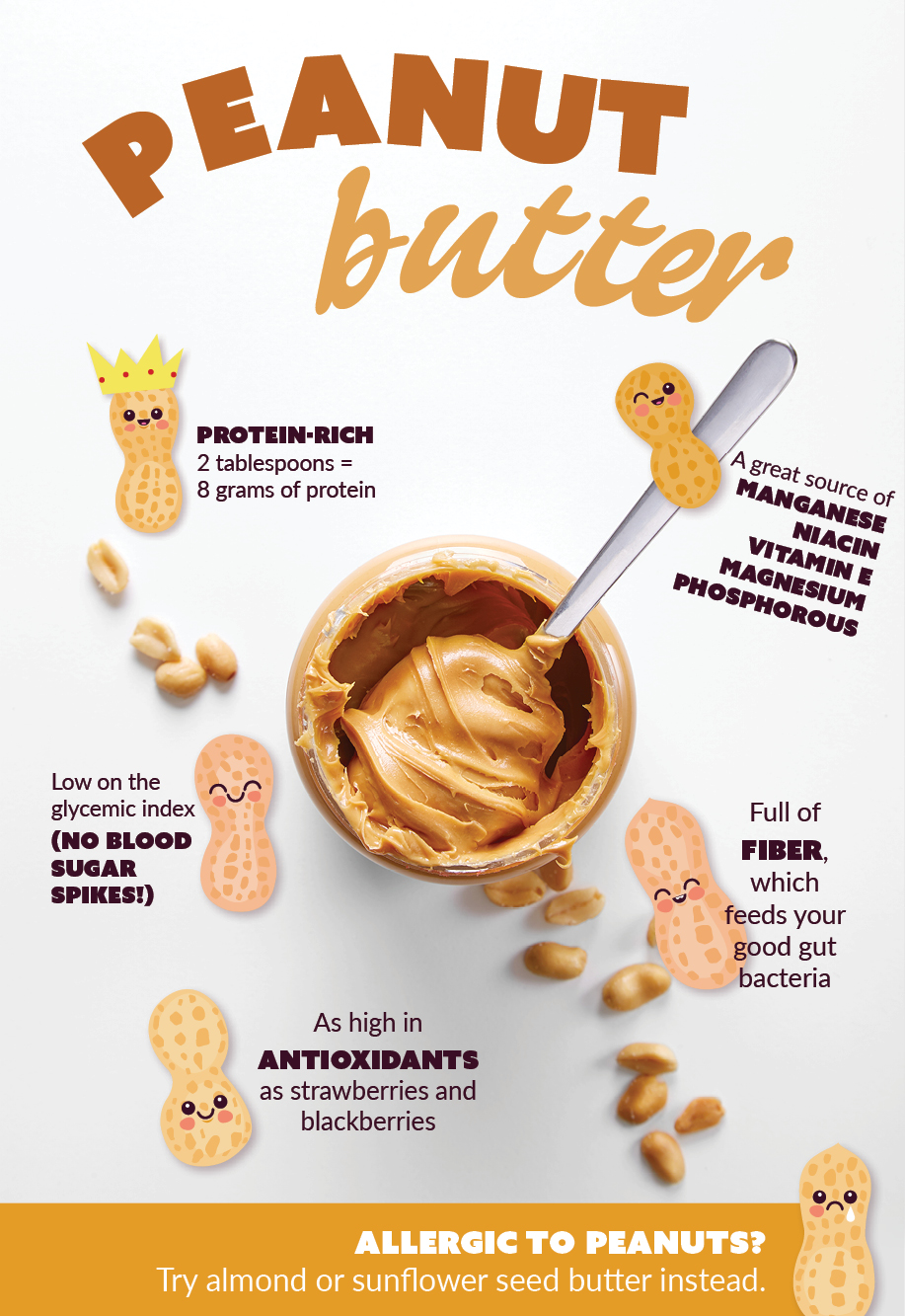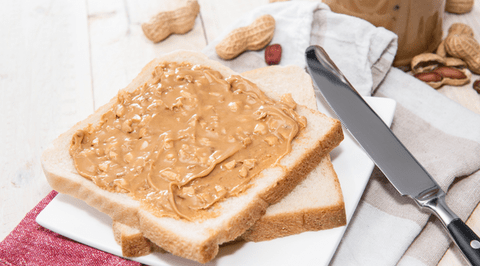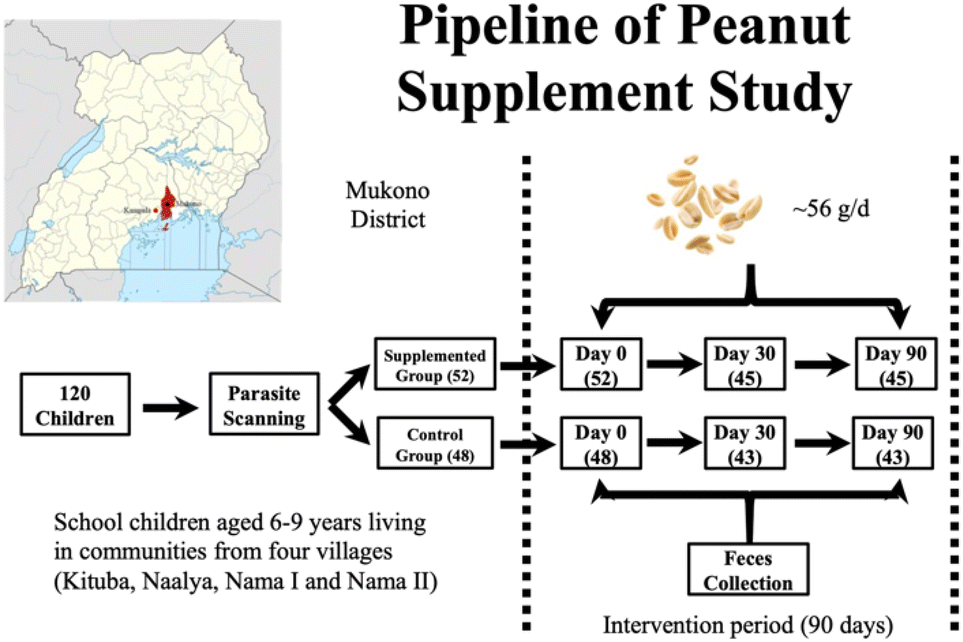Have you ever wondered if your love for peanut butter could be doing more than just satisfying your taste buds? Could it actually be playing a part in supporting or hindering your gut health? Whether you’re spreading it on toast, blending it into smoothies, or simply enjoying it by the spoonful, peanut butter is a staple in many households. But what’s the real deal when it comes to its effects on your digestive system?
Understanding Gut Health
Before diving into the specifics about peanut butter, it’s important to understand what gut health entails. Essentially, gut health refers to the balance and function of bacteria in parts of the gastrointestinal tract. A healthy gut contributes to a strong immune system, heart health, brain health, improved mood, healthy sleep, and efficient digestion, among other advantages.
Components of a Healthy Gut
Your gastrointestinal tract houses trillions of bacteria, viruses, and fungi known collectively as the gut microbiome. The good bacteria help with digestion, absorbing vitamins and minerals, and bolster your immune system. When these microorganisms remain balanced, they help keep your body functional and healthy. Disruptions in balance can lead to bloating, indigestion, and other health issues.
Nutritional Profile of Peanut Butter
Knowing what’s in the food you eat is essential in understanding its impact on your health, gut or otherwise. Peanut butter, being a pantry favorite, deserves a closer look.
Composition and Ingredients
Primarily made from roasted peanuts, peanut butter is a paste that’s both creamy and delicious. Standard store-bought versions often contain additional ingredients like salt, sugar, and oils. However, many purists prefer versions without these additives, opting for natural or organic options.
Basic Nutritional Breakdown
Here’s an insight into the general nutritional value of 2 tablespoons of regular peanut butter:
| Nutrient | Amount |
|---|---|
| Calories | 190 |
| Protein | 8g |
| Fat | 16g |
| Carbohydrates | 7g |
| Fiber | 2g |
| Sugar | 3g |
Benefits of its Nutrient Composition
- Proteins and Healthy Fats: Peanut butter is rich in protein and healthy fats, both of which are essential for muscle building, energy, and maintaining optimal liver function.
- Vitamins and Minerals: It contains Vitamin E, magnesium, potassium, and phosphorus – all crucial for various bodily functions.
- Fiber: While not the highest source of fiber, every bit contributes to better digestion and slower sugar absorption.

The Role of Peanut Butter in Gut Health
To connect the dots between peanut butter and gut health, consider how the components of peanut butter interact within your digestive system.
Fiber and Digestion
Even with a modest fiber content, peanut butter assists in digestive health. Fiber acts as a prebiotic in your gut, meaning it’s fuel for the good bacteria. This can encourage a healthier gut flora composition, which is crucial for preventing diseases and promoting wellness.
Healthy Fats and Inflammation
The monounsaturated fats found in peanut butter also play a role. These fats have anti-inflammatory effects that can help reduce chronic inflammation in your gut, often associated with numerous diseases and alimentary discomfort.
Protein’s Role
The protein content might promote the growth and repair of body tissues, including those in your gut. Particularly for those seeking plant-based protein sources, peanut butter serves as an effective option.
Potential Pitfalls of Peanut Butter Consumption
While peanut butter has beneficial properties, it’s essential to be aware of potential downsides, especially concerning gut health.
Additives and Your Gut
Many commercial brands contain added sugars and hydrogenated oils. These can disrupt the gut’s balance, leading to digestive issues, inflammation, and even worsening symptoms for those with conditions like IBS.
Allergy Risks
Peanut allergies are a significant consideration. Allergic reactions can range from mild to life-threatening, including symptoms tied directly to the GI tract, such as stomach upset or diarrhea.
Caloric Content
While not directly linked to gut health, the high caloric density of peanut butter can lead to weight gain if consumed excessively. Obesity is a risk factor for several gut-related diseases, including acid reflux.

The Science Behind Peanut Butter and Gut Health
To make an informed decision, exploring the scientific research surrounding peanut butter and digestive health is essential.
Studies and Research Insights
Research indicates that the fiber and healthy fats in peanuts and peanut products can have prebiotic effects, enhancing the growth of beneficial gut bacteria. However, it’s important to note that more focused research is still needed to understand long-term impacts.
Contrasting Studies and Expert Opinions
Some studies show negligible effects, especially when additives overshadow the natural properties of peanuts. Health experts recommend moderation and choosing natural varieties to reap the gut-related benefits.
How to Integrate Peanut Butter into a Gut-Healthy Diet
With a clearer understanding of its impacts, you might be eager to include peanut butter in a gut-friendly manner.
Choosing the Right Peanut Butter
- Natural over Processed: Opt for versions with minimal ingredients – peanuts and maybe a pinch of salt.
- Watch for Additives: Avoid brands with added sugars or oils.
Creative and Healthy Ways to Consume
- Smoothies: Blend with fruits and greens for a fiber and protein boost.
- Oatmeal: Stir into your morning oats for added flavor and nutrition.
- Veggie Dips: Use as a dip for celery or carrot sticks, boosting your fiber intake.
Portion Control and Frequency
While beneficial, balance is key. Opt for 1-2 tablespoons per serving and avoid excessive consumption.

Potential Alternatives and Comparisons
If peanut butter isn’t your favorite or if you have dietary restrictions, there are similar options available that you might consider for gut health.
Almond Butter and Other Nut Butters
Almond butter provides more Vitamin E and magnesium, both vital for gut health. However, it may also come with higher prices.
Seed Butters
Sunflower or pumpkin seed butter can be suitable alternatives, especially for those with nut allergies. They offer a different nutrient profile that can equally support a healthy gut.
Final Thoughts on Peanut Butter and Gut Health
In your journey towards improved gut health, peanut butter could be a delicious asset when consumed mindfully. Its inherent nutrients provide notable benefits, but like all good things, moderation and mindful selection are necessary to maximize its advantages while avoiding potential pitfalls. As you enjoy peanut butter in your diet, remember that a varied and balanced approach is key to achieving optimal health and well-being.
Isn’t it fascinating how an everyday snack can influence your digestive system? By making informed choices, you can turn your love for peanut butter into a wonderful ally for your gut health!
